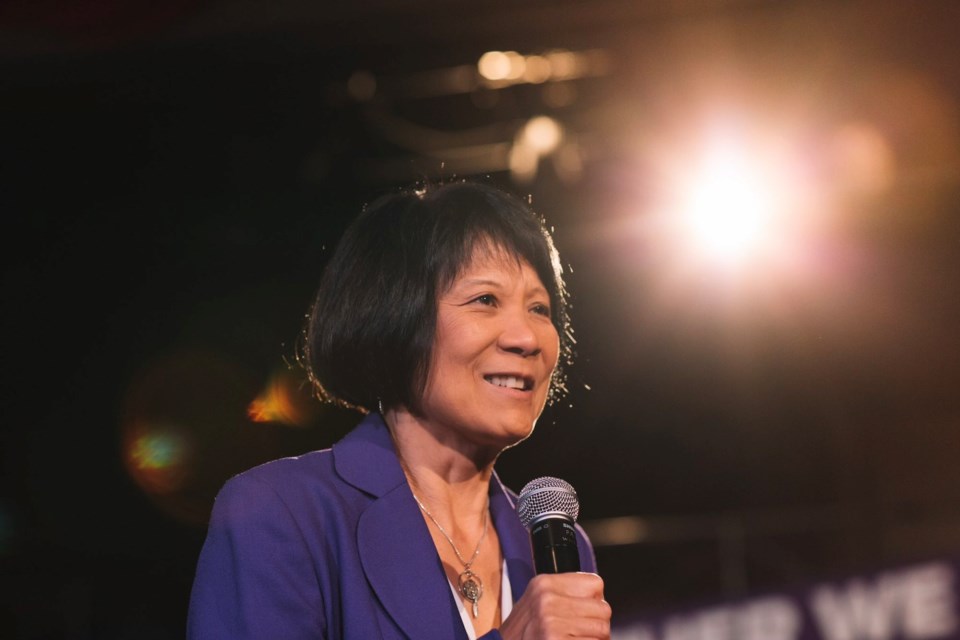This story is part of a partnership between The Green Line and The Trillium for readers who care deeply about Toronto and the people, policies, and politics at play. We’re pairing The Green Line’s unique community-driven, solutions-oriented journalism with The Trillium’s signature insider coverage of Ontario politics and policy to dig deep into the city’s problems and connect you with the plans the Toronto mayoral candidates are proposing to fix them.
Olivia Chow has been elected mayor of Toronto, winning by a slim margin after dominating the polls throughout the campaign.
The former Toronto councillor and NDP MP quickly became the front-runner when she jumped into the race this spring and kept a wide polling gap between herself and the other contenders. Several of her opponents pitched themselves as the only ones able to stop Chow, but no one major dropped out in the final weeks.
She narrowly defeated former deputy mayor Ana Bailão, the choice of former mayor John Tory, whose resignation kicked off the byelection. Bailão pitched herself as a pragmatic consensus-builder. It did not resonate with quite enough voters after nearly a decade of Tory's pragmatic consensus-building.
The outcome marks the second political defeat for Mark Saunders, seen by some — including Premier Doug Ford — as the right's best shot at holding onto the mayor's office. Saunders, a former Toronto police chief, ran in the 2022 provincial election under the PC banner in Don Valley West and lost to Liberal Stephanie Bowman.
Chow also batted away serious contenders for the progressive vote. Longtime councillor Josh Matlow was a potential front-runner before Chow entered the race. He maintained some momentum until the final weeks when support consolidated behind Chow. And mere days after Chow announced she was running, urbanist Gil Penalosa, the left’s standard-bearer in the 2022 election, dropped out of the race and endorsed her.
Meanwhile, former Liberal MPP Mitzie Hunter pitched the most detailed plan of any candidate, with specific tax rates and policies in a costed, 70-page platform, and released a podcast on her plans to "Fix the Six" but failed to gain traction.
Chow was less detailed, especially about her fiscal plans. The city faces a $1.5-billion budget hole, and she has refused to spell out exactly how she will fill it. She needs to take stock of what the city should accomplish, then figure out a way to pay for it — not the other way around, she has said.
She butted heads with Ford repeatedly during the campaign. Ford made a last-ditch effort to steer voters away from Chow last week, saying it would be an "unmitigated disaster" if she were elected.
Likewise, Chow has been critical of the premier's plans for Ontario Place and the Science Centre but has not attacked him as pointedly as other candidates.
She has promised not to use the strong-mayor powers Ford bestowed on the mayors of Toronto and many other cities.
More to come. This story will be updated after the candidates have delivered victory and concession speeches.



